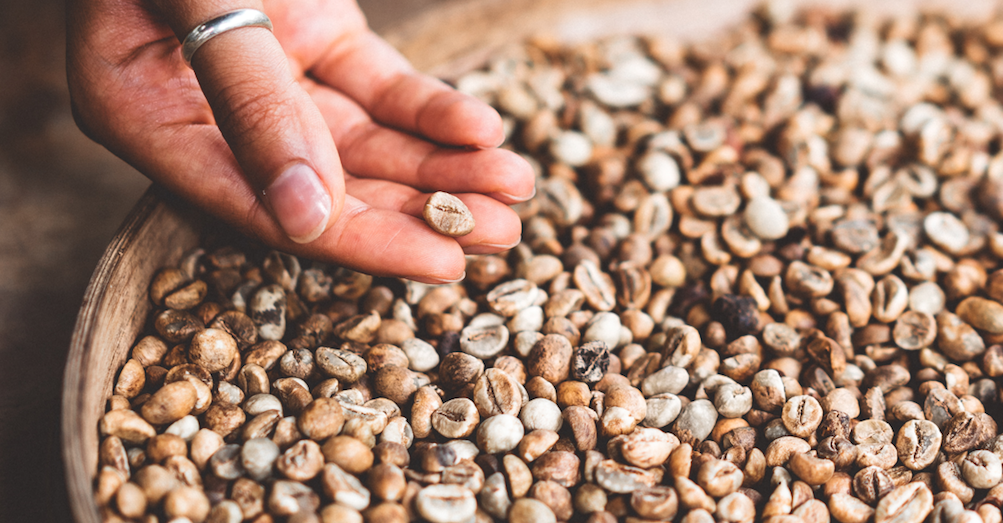By Mark Scott
 “Blessed art Thou, O Lord our God, King of the universe, who brings forth bread from the earth.” Our Jewish friends call this the Traditional Ha-Motzi Blessing, which is recited before eating bread on the Sabbath. Psalm 65 may be something like a predecessor to that prayer. It praises God for his provision. The superscription of the Psalm says that it is a psalm of David, but it mentions the temple (v. 4), and the temple was not built in David’s time. Perhaps David wrote it as a psalm for harvest time, and it became more formalized for worship at the temple later.
“Blessed art Thou, O Lord our God, King of the universe, who brings forth bread from the earth.” Our Jewish friends call this the Traditional Ha-Motzi Blessing, which is recited before eating bread on the Sabbath. Psalm 65 may be something like a predecessor to that prayer. It praises God for his provision. The superscription of the Psalm says that it is a psalm of David, but it mentions the temple (v. 4), and the temple was not built in David’s time. Perhaps David wrote it as a psalm for harvest time, and it became more formalized for worship at the temple later.
God is not only the Creator who is worshipped in a new song (the themes of our last two lessons), he also is praised for being the great provider. Very early in the Bible we are acquainted with this God who provides. In Eden God provided food for Adam and Eve (Genesis 2:16). In the flood God provided an ark to save Noah’s household (Hebrews 11:7). But a well-known story of provision is the testing of Abraham in Genesis 22. God provided the test, the seed of promise (Isaac), and the ram that was caught in the thicket (a substitute).
He Provides Forgiveness
Psalm 65:1-4
The psalmist pictures a person going up to the temple to worship God and references Zion. This word has many nuances mostly referring to a place. It can refer to God’s people, the city of Jerusalem, the temple, and even the original city of David—just to the south of Solomon’s temple. The psalmist begins with Praise. This is the first word in the psalm, and it is the Hebrew label for this book of the Bible.
Besides praise given at the right place, there are several other things necessary for good worship. This would include fulfilling vows, acknowledging answered prayers, a blessing for the priests, and enjoying the good things of God that result when God’s people worship.
But as much as we bring to worship there is one thing that we need in worship, and that is forgiveness. Verse 3 reads, When we were overwhelmed by sins, you forgave our transgressions. The word forgave is the word for “covering” (kippur). One aspect of forgiveness is the covering of an offense. God can uniquely provide that.
He Provides Power
Psalm 65:5-7
Since God is God, one thing that he does not lack is power. Our power is quite puny. God’s power is unlimited. Knowing that helps us stand in awe of him. It also helps us bear witness to his awesome and righteous deeds. Some of these deeds were salvific. He delivered Israel and set the captives free. He is God our Savior. He has power to save to all the ends of the earth and of the farthest seas (see also Hebrews 7:25).
In addition to his power to rescue, he has power over his creation. He can make it, and when it gets unruly due to sin, he can wrestle it to the ground. He formed the mountains, he armed himself with strength, and he stilled the roaring of the seas. In the ancient world, and somewhat in the Old Testament, the tumultuous water was seen as something only God can tame (Genesis 1:2). He has power over the seas, the waves, and even the nations.
He Provides Harvest
Psalm 65:8-13
Even though the earth (land) was cursed due to sin (Genesis 3:17-19), and even though God had to judge the world with a flood because of ongoing sin (6:5-8), God still provided “seedtime and harvest, cold and heat, summer and winter, day and night” (8:22). He does, in fact, bring forth bread from the earth.
The earth is personified and shown to be filled with awe as morning and night continue. Even in its fallen state God calls to the earth with songs of joy and the earth springs to life. God provides water so that harvest can be expected.
A bumper crop demands rain. The Middle East knows this all too well. God is so powerful he can make the desert produce (Isaiah 35:1, 2). An Israeli guide named Amnon called rain “sky juice.” God can drench the furrows or soften it with showers.
His rain produces bounty and abundance. The grasslands, hills, meadows, and valleys are personified as being clothed and shouting for joy. “For everything created by God is good, and nothing is to be rejected if it is received with thanksgiving” (1 Timothy 4:4, English Standard Version). The one who is the bread of life (John 6:41) provides bread for his people. He is the provider, so he provides.
Dr. Mark Scott teaches Preaching and New Testament at Ozark Christian College in Joplin, Missouri.
Based on International Sunday School Lesson, © 2012, by the Lesson Committee. Scripture quotations are from the New International Version ©2011, unless otherwise indicated.
As you apply today’s Scripture study to everyday life, read Engage Your Faith by David Faust and the correlating Evaluation Questions.



Comments: no replies